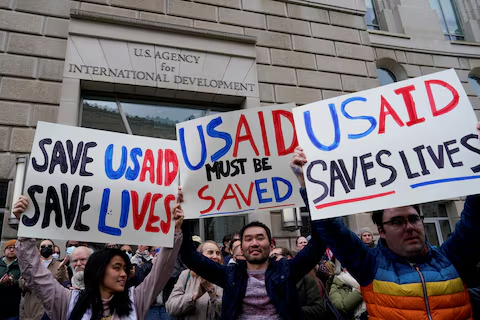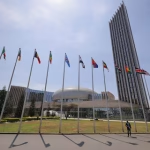In a country already struggling with one of the world’s most catastrophic humanitarian crises, recent reports reveal that patients suffering from cholera in South Sudan have been dying while making the arduous journey to clinics. The situation has worsened significantly following cuts to U.S. aid, highlighting the dire consequences of funding reductions in one of the most vulnerable nations on the globe.
According to reports from humanitarian organizations operating in the region, the cholera outbreak, which has claimed hundreds of lives since its resurgence, has been exacerbated by limited access to medical facilities and treatment. A significant contributing factor to this deteriorating situation has been the recent cuts to foreign aid from the United States, which has traditionally played a pivotal role in funding essential healthcare services and humanitarian relief efforts in South Sudan.
The United Nations Office for the Coordination of Humanitarian Affairs (OCHA) noted that the cholera outbreak is compounded by ongoing conflict, displacement, and food insecurity, which collectively create an environment where diseases can flourish. In this context, patients determined to seek help are often forced to walk long distances in search of clinics, many of which are already overwhelmed and understaffed.
A charity operating in South Sudan, World Vision, reported that more than 50 cholera patients have died en route to treatment facilities since aid reductions were implemented. These tragic incidents serve as stark reminders of the dire consequences faced by the most vulnerable populations, who often have no choice but to embark on treacherous journeys in search of the medical care they desperately need.
In addition to cholera, South Sudan is grappling with other health crises, including malnutrition, measles, and malaria, which further strain the limited healthcare infrastructure. The lack of adequate medical supplies and trained personnel means that even those who reach clinics may not receive the treatment they require in a timely manner. Reports indicate that several clinics have been forced to close or limit services due to insufficient funding and resources.
Experts warn that the withdrawal of U.S. aid not only threatens to exacerbate the cholera outbreak but could also trigger a cascade of public health crises throughout the country. With access to clean water and sanitation still a significant issue in many regions, the decline in aid may leave communities vulnerable to further outbreaks of preventable diseases.
The situation has drawn criticism from numerous humanitarian organizations, which argue that the cuts to aid are shortsighted and jeopardize years of progress made in improving health outcomes in South Sudan. They emphasize the urgent need for international support to be restored to previous levels to avert further loss of life and ensure that vulnerable populations receive the care they need.
Advocacy groups are mobilizing to raise awareness about the crisis and urge the U.S. government to reconsider its funding cuts. The message is clear: without an immediate increase in humanitarian assistance, the already dire health situation in South Sudan will continue to deteriorate, leading to further fatalities among cholera patients and others seeking medical care.
In conclusion, the heartbreaking stories of patients dying on their way to clinics underscore the critical need for sustained humanitarian support in South Sudan. As international awareness grows, it is imperative that the global community recognizes its responsibility to assist those in desperate need. The lives of countless individuals hang in the balance, and immediate action is required to prevent further tragedy in this war-torn country.
Email Us on editorial@nnafrica.com













